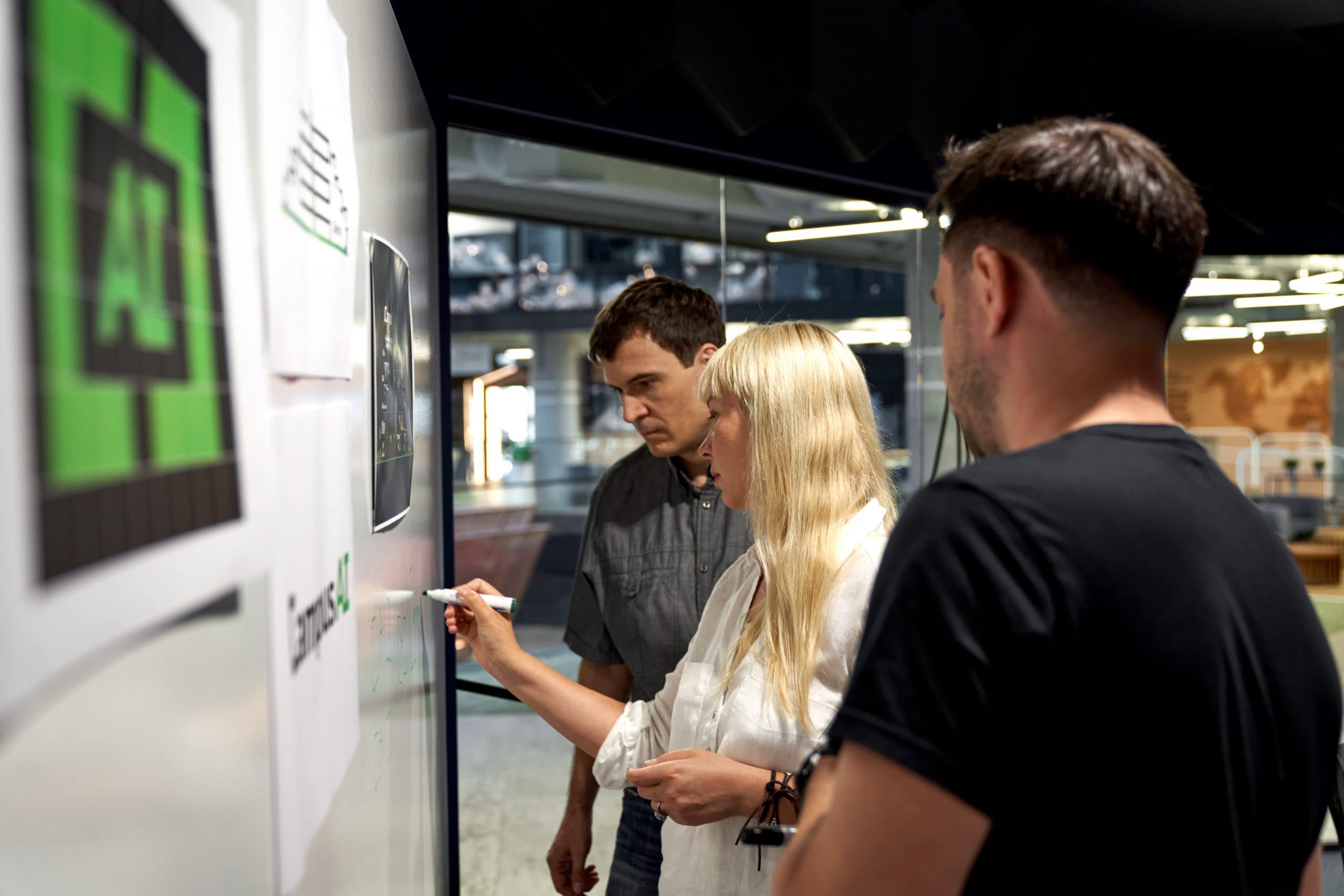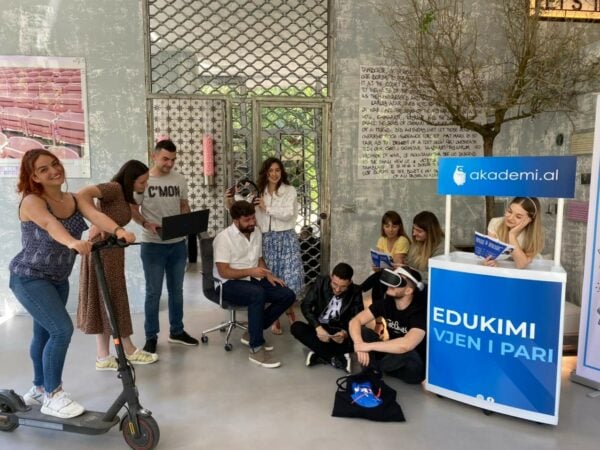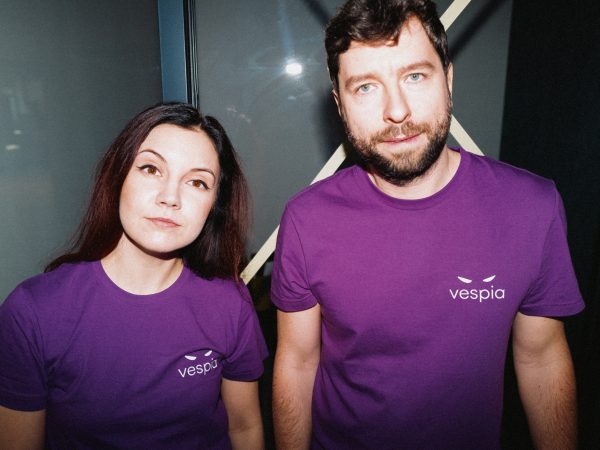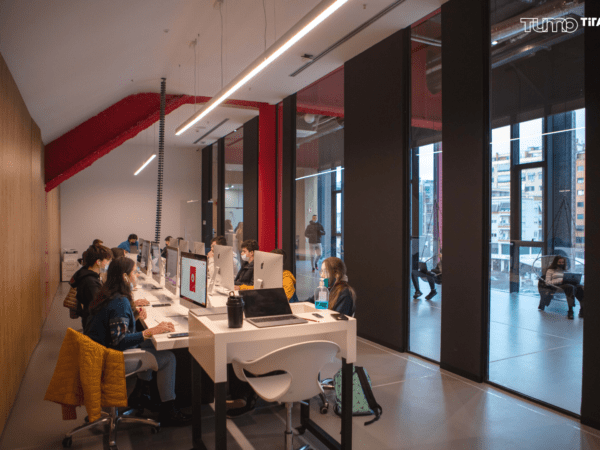As artificial intelligence becomes increasingly integrated into our daily lives, the need for accessible and practical AI education grows. CampusAI was created to address this need, offering a platform that combines expert insights, personalized learning with a community-driven approach. In this article, we talk to Founder & CEO Aureliusz Gorski to delve into the origins of CampusAI, its mission, and the unique ways it is preparing learners for the future of AI.

What inspired you to start CampusAI, and what is the core mission you aim to achieve with this platform?
The inspiration behind CampusAI was the desire to create a space where individuals and organizations could fully harness the potential of artificial intelligence. Our goal is to make AI more accessible and understandable for everyone, regardless of their level of knowledge or experience. CampusAI is a response to the overwhelming noise surrounding AI – a platform designed to guide people through the technological revolution in a simple and engaging way, helping individuals and organizations prepare for an AI-driven future.
Our mission is to go beyond education and drive transformation. CampusAI empowers individuals to explore new opportunities, enhance their skills, and join a global network focused on collaboration and innovation. By placing people at the core of technology, we ensure that AI becomes a tool for unlocking human potential, fostering creativity, and boosting productivity.
On your website you mention that participants can progress at their own pace. Could you tell us more about how the platform facilitates personalized learning?
At CampusAI, personalized learning is at the heart of our approach. We recognize that each participant has unique needs, goals, and levels of familiarity with AI. To support this, the platform is designed to enable self-paced and blended learning journeys. All our courses are structured into modular, bite-sized segments that include a wealth of examples, case studies, and practical exercises involving AI tools. This approach ensures that participants not only gain theoretical knowledge but also develop hands-on skills by actively using AI tools throughout the course, equipping them to apply their learning in real-world scenarios.
One of our flagship courses, Me+AI, is specifically designed for individuals without a technical background who want to understand AI and leverage it in their work. This program covers AI fundamentals, ethics, security, prompting basics, and practical applications across various industries. Participants learn to collaborate effectively with AI, discovering how it can enhance and streamline their work processes. The training culminates in the creation of an individual project that requires using AI solutions to a practical challenge relevant to the participant’s field. Upon completion, each participant receives a certificate endorsed by top AI researchers, such as Prof. Aleksandra Przegalińska and Prof. Dariusz Jemielniak. This course not only optimizes participants’ workflows but also opens doors to new professional growth opportunities.
Community engagement remains a cornerstone of the learning experience. Participants can connect with peers and mentors through news sharing, discussion forums, and collaborative projects. This fosters a culture of shared learning while allowing individuals to progress at their own pace. Additionally, CampusAI provides on-demand access to a comprehensive library of resources and AI tools, empowering learners to explore topics aligned with their specific interests and professional goals.
You emphasize the importance of developing the platform in collaboration with the community. Could you share some examples of how community feedback has shaped your programs and features?
Community collaboration is a cornerstone of CampusAI’s development. By actively engaging with our learners, industry experts, and partners, we ensure the platform evolves to meet real-world needs. We constantly gather feedback from our participants to address their needs related to business and personal projects. This input allows us to continually update our courses with more interactive exercises, new tools, real-world case studies, and practical projects that apply AI solutions to workplace challenges.
A prime example of our community-driven approach is our hAI Magazine, which is the first AI magazine in Poland that is both created by and shaped through our local community’s contributions. This publication serves as a platform where our participants, industry experts, and AI enthusiasts share their insights, articles, and case studies. From highlighting innovative uses of AI in various industries to exploring ethical considerations and future trends, the magazine reflects the diverse voices and expertise within the CampusAI network. By fostering this collaborative spirit, hAI Magazine has become a living example of how community engagement drives meaningful innovation.
How do you stay ahead of the curve in terms of AI advancements and ensure that your content and tools are always up to date?
Staying ahead in the rapidly evolving field of AI requires close collaboration with leading researchers and experts. At CampusAI, we work directly with top AI researchers, such as Prof. Aleksandra Przegalińska and Prof. Dariusz Jemielniak, to ensure our content and tools are rooted in the latest advancements and discoveries in the field. Their research and findings serve as the foundation for many of our products and courses, allowing us to deliver access to the most relevant and impactful AI tools and knowledge to our clients.
Insights from their groundbreaking studies on AI have directly shaped the development of our Me+AI course as well as the features of our AI tools.
Notably, research conducted by our team at Kozminski University in Warsaw, in collaboration with Harvard University and MIT, revealed a 40% increase in work efficiency and a 60% boost in work satisfaction when using generative AI tools. By integrating these research findings into our platform, we ensure that it embodies both cutting-edge theoretical knowledge and practical applications, effectively addressing real-world challenges.
Additionally, our partnership with researchers extends beyond content creation. They actively contribute to the development of community-focused initiatives such as the already mentioned hAI Magazine, where they share their expertise and foster dialogue on emerging trends.
How do you measure the success and impact of your educational programs, and can you share some metrics or outcomes that highlight your effectiveness?
Many of our clients return to us with positive feedback, sharing real examples of how our courses have made a difference in their lives. From optimizing workflows and achieving project success to earning career advancements, their stories highlight the tangible impact of our programs. For instance, participants frequently mention how tools and strategies learned during our courses helped them streamline their daily tasks, reduce inefficiencies, and save valuable time, allowing them to focus on higher-priority work. Others have shared how they successfully applied their new AI skills to complete complex projects, often exceeding expectations and earning recognition within their organizations. These individual successes also extend to their teams and companies, where the adoption of AI-powered solutions has resulted in measurable improvements in productivity and outcomes.
Beyond these professional achievements, we are continually inspired by the creative and social projects, which our participants are involved in. Many of these initiatives go beyond personal or organizational goals, focusing on making a broader positive impact in their communities, further showcasing the transformative power of the skills and insights gained through our platform.
One inspiring example involves collaborating with a city and external experts in community participation to support the automation of administrative processes. This initiative leverages local efforts to create practical tools, such as a user-friendly guide for navigating a selected city. Our goal is to create a space that drives meaningful change and fosters collaboration between the city officials and community . While this work is starting in Warsaw, our ambition is to expand the initiative to involve more cities in the future.
What are some challenges you’ve faced in expanding CampusAI, and how have you overcome them?
Expanding CampusAI has been an exciting journey, but not without its challenges. One of the key obstacles we faced was ensuring accessibility and relevance across diverse audiences. To overcome this, we’ve built a roadmap of different courses addressing different needs, allowing participants to tailor their learning paths based on their experience and goals. This flexibility has been critical in catering to the unique needs of our growing global community.
Another significant challenge is keeping up with the rapid pace of AI advancements while maintaining the quality and practicality of our content. We address this by collaborating with top researchers and industry experts who continuously provide cutting-edge insights. Their input allows us to keep our programs up to date and grounded in the latest research, ensuring our participants always have access to the most relevant tools and knowledge.
Finally, scaling operations while maintaining an exceptional learning experience required innovative solutions. By leveraging AI-driven tools in our platform, we ensured that every participant could learn practical skills while using different AI tools.
Looking ahead, what are some major milestones and goals that you would like to achieve within the next five years?
A major focus for CampusAI in the next five years is our global expansion. We aim to make our platform accessible to participants across diverse regions and languages, ensuring that no barriers stand in the way of learning and innovation. This will involve launching localized versions of our courses tailored to cultural and professional contexts, as well as forming strategic partnerships with universities, corporations, and organizations worldwide. By fostering a global network of learners and professionals, we hope to build bridges between communities and industries, accelerating the adoption of AI solutions on a global scale.
Equally important to our vision is building a thriving, collaborative community that extends beyond traditional learning. We see CampusAI not just as a platform, but as an ecosystem where learners, experts, and enthusiasts can connect, share, and grow together. Over the next five years, we aim to significantly expand community-driven initiatives, empowering participants to contribute their insights and collaborate on innovative projects. By creating more opportunities for interaction, such as virtual events, individual and group challenges, social projects, startup accelerators and other initiatives, we aspire to foster a vibrant, engaged network that becomes a hub for AI innovation and thought leadership.
Our ultimate goal is to create a truly global and interconnected community that leverages the power of AI to address challenges, unlock potential, and drive progress across industries and societies in shaping the AI-driven future together.
This article is a part of the series exploring CEE startups offering AI solutions beyond content generation. If you want to nominate a startup we should talk to, feel free reach out to us.



